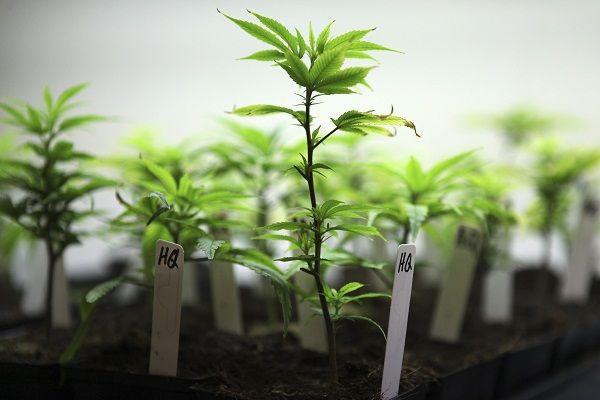Marijuana Compound May Halt Cancer Spread

A chemical compound in marijuana could stop the spread of many forms of aggressive cancer, according to a pair of scientists at California Pacific Medical Center in San Francisco.
Sean McAllister and Pierre Desprez found that the compound cannabidiol was capable of switching off the gene responsible for metastasis in many kinds of aggressive cancers without producing the psychoactive properties of the cannabis plant.
McAllister and Desprez first detected its potential five years ago after they found that the compound stopped the proliferation of human breast cancer cells in the laboratory, according to a paper published in the journal Molecular Cancer Therapeutics.
Since then, the pair also found a similar effect in mice. They say that they will soon publish another animal study that will support and expand these results further.
"The preclinical trial data is very strong, and there's no toxicity. There's really a lot or research to move ahead with and to get people excited," McAllister told the San Francisco Chronicle.
However they noted that while there is still a lot more research to be done before their findings could be turned into a pill, they are already developing human clinical trials, hoping to test the drug in combination with current therapies, like chemotherapy.
Desprez, a molecular biologist, spent years studying ID-1, the gene that causes cancer to spread, and McAllister had discovered the cannabidiol or CBD had anti-cancer potential.
Afterwards, they collaborated by combining CBD and cells containing high levels of ID-1 in a petri dish. "What we found was that his Cannabidiol could essentially 'turn off' the ID-1," Desprez told the Huffington Post. The cells stopped spreading and returned to normal," Desprez told Huffington Post.
"We started by researching breast cancer," said Desprez. "But now we've found that Cannabidiol works with many kinds of aggressive cancers--brain, prostate--any kind in which these high levels of ID-1 are present."
The pair hopes that clinical trials will begin immediately. They say that they have found no toxicity in the animals they've tested and that cannabidiol is already used in humans for a variety of other ailments, like relieve anxiety and nausea, without producing the "high" associated with THC.



























